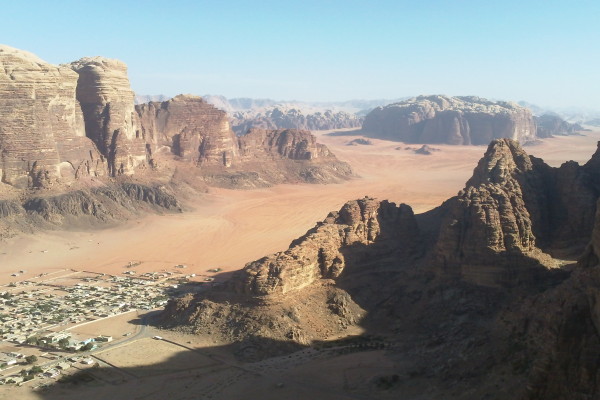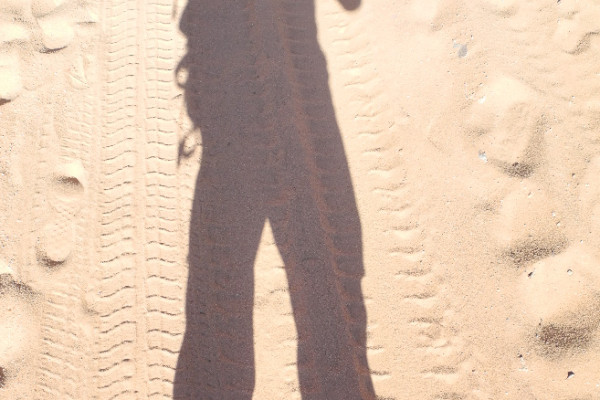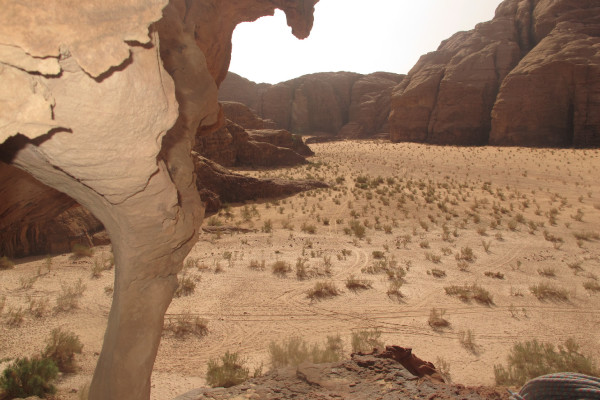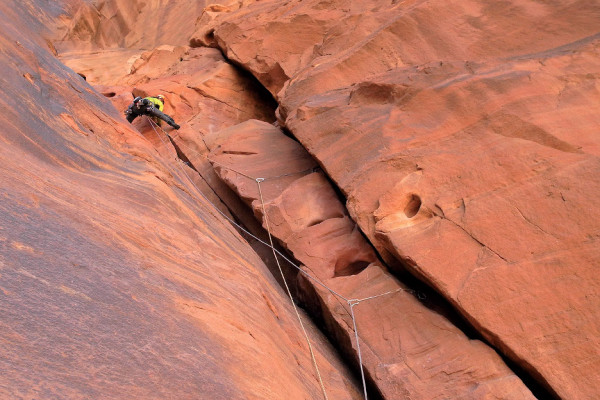Incastri nel deserto di Lawrence d’Arabia
Da quando arrampicai per la prima volta in Utah, capii che, per me, l’arenaria ha un fascino particolare. Forse perché il nome anglosassone, “sandstone”, unisce due parole che racchiudono l’essenza del mio modo di andare in montagna. Il mio alpinismo è fatto proprio di “stone” e di “sand”: amo accarezzare e stringere la pietra per innalzarmi sulle pareti partendo dal mare, dove le onde si frangono sugli scogli e accarezzano la sabbia.
Wadi Rum, il paradiso della scalata su arenaria nel Medio Oriente, è una valle che fu scavata dallo scorrere di un fiume nel suolo sabbioso. La parola “uadi” indica il letto di un torrente e “rum” significa probabilmente “alto” o “elevato”. Wadi Rum è il più vasto “uadi” della Giordania.
Una settimana trascorsa fra incastri, spostamenti in 4×4, serate attorno al fuoco del campo, albe che infuocano l’immensa parete di Jebel Rum, tramonti scanditi da pisolini sulle amache, cene beduine a base di riso speziato, hummus (pasta di ceci), crema al formaggio di capra e pane di pita (pane piatto a base di grano).
Cosa desiderare di più? Soltanto due cose: scoprire le forme nascoste sotto gli strati di stoffa dell’unica donna araba “a piede libero”, incontrata nel villaggio, e scassinare un frigo pieno di birre ghiacciate. Da queste parti, infatti, l’alcool è ufficialmente bandito.
Solo poco prima di partire scopriamo che in uno dei due bar del villaggio girano alcune bottiglie di birra “di contrabbando”: l’anno prossimo ci faremo più furbi…!
Jamming in the desert of Lawrence of Arabia
On my first climb in Utah, I realized that sandstone holds a particular fascination for me. Maybe it’s because the name combines two words that represent the essence of my style of mountaineering. My kind of climbing is made of stone and sand: I love to caress and squeeze the stone as I work my way up the cliffs that start in the sea, where the waves crash against the rock and stroke the sand.
Wadi Rum, the paradise of sandstone climbing in the middle east, is a valley carved out by the flow of a river over the sandy ground. The term “uadi” refers to the bed of a stream, and “rum” most likely means “high” or “elevated.” Wadi Rum is the largest “uadi” in Jordan.
A week spent between jamming, transfers by 4×4, evenings by the campfire, dawns enflaming the immense face of Jebel Rum, sunsets marked by naps in hammocks, and Bedouin dinners based on spiced rice, hummus (garbanzo paste), creamy goat cheese and pita bread (a flat wheat bread). What more could we want? Just two things: to discover the shape hidden by the layers of fabric draping the only Arab woman “at large” in the village, and to break open a refrigerator full of ice-cold beer. Here, alcohol is officially banned. Not until right before we left did we discover that one of the two bars in the village had a few bottles of contraband beer. Next year we’ll be Cleverer…!
Jebel um Ejil Wadi Rum – Jordan
Experience by Marcello Sanguineti








